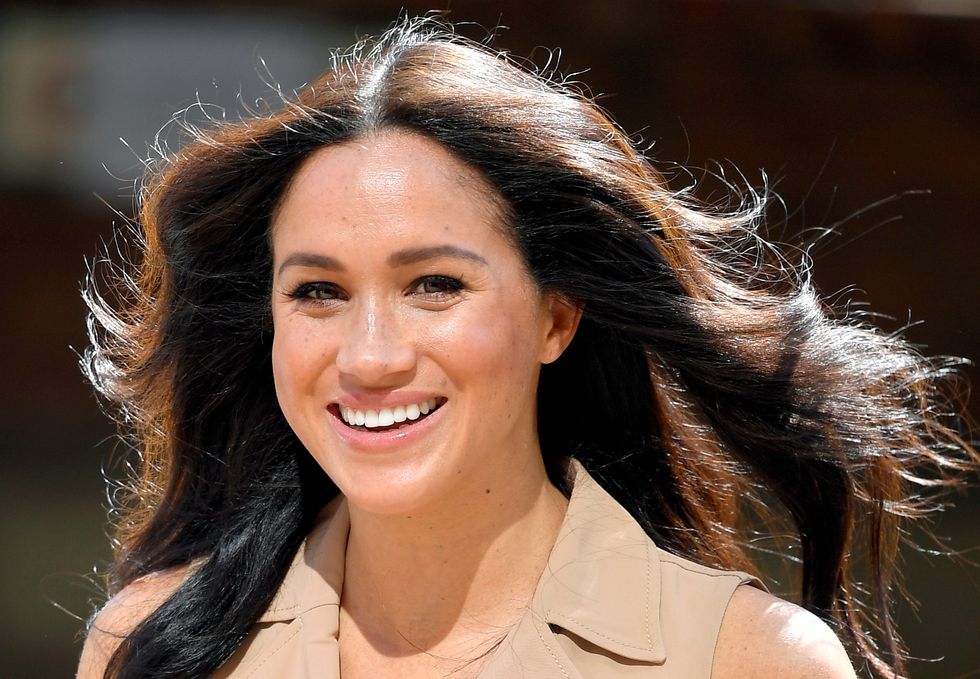The Duchess of Sussex has apologised for misleading the court over her recollection of the information given by her aides to the authors of an unauthorised biography about her and her husband.
Yui Mok
'I accept that Mr Knauf did provide some information to the authors for the book and that he did so with my knowledge', Meghan admitted in court
Don't Miss
Most Read
Trending on GB News
The Duchess of Sussex has apologised for misleading the court over her recollection of the information given by her aides to the authors of an unauthorised biography about her and her husband.
Meghan, 40, sued the publisher of The Mail On Sunday, Associated Newspapers Limited (ANL), over five articles that reproduced parts of a “personal and private” letter sent to her father Thomas Markle, 77, in August 2018.
The High Court ruled earlier this year that ANL’s publication of Meghan’s letter to her father was unlawful, entering summary judgment for Meghan and avoiding the need for a trial.
But ANL is challenging that ruling at the Court of Appeal, arguing the case should go to a trial on Meghan’s claims including breach of privacy and copyright.
The court heard this week that Meghan and Harry’s former communications secretary Jason Knauf provided information to the authors of Finding Freedom by Omid Scobie and Carolyn Durand.
In a witness statement, Mr Knauf said the book was “discussed on a routine basis”, which was “discussed directly with the duchess multiple times in person and over email”.
Mr Knauf also discussed planning a meeting with the authors to provide background information and said Meghan had given him several briefing points to share with them, including information on how she had “very minimal contact” with her half-siblings during her childhood.
Emails released as part of Mr Knauf’s statement showed he had emailed Harry to discuss the book and to say he would meet the authors.
According to the former aide, the duke replied: “I totally agree that we have to be able to say we didn’t have anything to do with it.
Britain's Meghan Markle, Duchess of Sussex, arrives to meet academics and students during a roundtable discussion on female access to higher education with the Association of Commonwealth Universities, at the University of Johannesburg, Johannesburg, South Africa, October 1, 2019. REUTERS/Toby Melville/File Photo
TOBY MELVILLE
“Equally, you giving the right context and background to them would help get some truths out there.”
In her witness statement, made public on Wednesday, Meghan apologised for misleading the court about whether Mr Knauf provided information to Mr Scobie or Ms Durand.
She said: “I accept that Mr Knauf did provide some information to the authors for the book and that he did so with my knowledge, for a meeting that he planned for with the authors in his capacity as communications secretary.
“The extent of the information he shared is unknown to me.
“When I approved the passage…I did not have the benefit of seeing these emails and I apologise to the court for the fact that I had not remembered these exchanges at the time.
“I had absolutely no wish or intention to mislead the defendant or the court.”
Meghan added that she would have been “more than happy” to refer to the exchanges with Mr Knauf if she had been aware of them at the time, adding they are “a far cry from the very detailed personal information that the defendant alleges that I wanted or permitted to put into the public domain”.
Another reason the duchess gave for not discovering the emails between her and Mr Knauf sooner was that the disclosure stage of the litigation had not yet been reached, and in October last year her lawyers applied to adjourn the trial date as she was pregnant.
She said she was advised to avoid stress, after her recent miscarriage, which came shortly after ANL indicated it wished to reveal the identities of her five friends who gave an interview to the US magazine, People, in which they referred to her relationship with her father.
Meghan said: “I was in the first trimester of my third pregnancy at the time, having suffered a miscarriage a few months prior, and was feeling very unwell.
“My doctor advised me to avoid stress, particularly given the recent miscarriage days after the defendant threatened to break the confidentiality of the original ‘sources’ for the People magazine article, which resulted in my having to make an urgent application for an anonymity order.
“This was granted … but I found the process extremely stressful, and it took its toll physically and emotionally.
“I have at all times wanted to protect the privacy of those friends, while the defendant was, it seemed to me, doing everything it could to make this litigation as intrusive as possible.”








